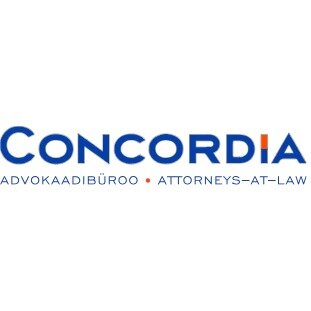Best Energy, Environment & ESG Lawyers in Estonia
Share your needs with us, get contacted by law firms.
Free. Takes 2 min.
Or refine your search by selecting a city:
List of the best lawyers in Estonia
About Energy, Environment & ESG Law in Estonia
Energy, Environment, and ESG (Environmental, Social, and Governance) law in Estonia refers to the country’s legal framework governing energy production and consumption, environmental protection, and corporate sustainability practices. Estonia is a member of the European Union, and its legal system incorporates EU directives and regulations regarding renewable energy, climate change mitigation, and corporate responsibility. Over the past decade, Estonia has made significant progress in switching from oil shale-based energy towards renewables and has updated its environmental regulations to meet EU standards. ESG considerations are playing an increasing role as businesses, investors, and regulators focus more on sustainable and ethical operations.
Why You May Need a Lawyer
There are several situations where consulting a legal professional in the field of Energy, Environment & ESG can be beneficial in Estonia:
- Assisting companies in complying with renewable energy requirements and environmental regulations.
- Guiding real estate developers through environmental impact assessment (EIA) processes.
- Advising on permits and licenses for energy production or infrastructure projects.
- Helping businesses understand and implement ESG reporting under Estonian and EU rules.
- Representing individuals or organizations in disputes involving pollution, land use, or environmental damage.
- Advising on transactions involving contaminated land or industrial sites.
- Supporting companies facing enforcement actions or penalties for non-compliance.
- Assisting with legal aspects of carbon trading, green finance, or renewable energy investments.
- Guiding NGOs or activists dealing with environmental litigation or advocacy.
- Supporting compliance with corporate sustainability reporting and due diligence obligations.
Local Laws Overview
Estonian energy and environmental law is shaped by both national regulations and EU directives. The main legal acts include the Environmental Code Act, the Energy Sector Organisation Act, and regulations on waste, water, air protection, and nature conservation. The country has renewable energy targets in line with the EU Green Deal and is committed to reducing greenhouse gas emissions and increasing energy efficiency.
Key aspects include:
- Mandatory Environmental Impact Assessments (EIA) for projects likely to affect the environment.
- Strict permitting requirements for energy projects, including grid connection and operating licenses.
- Requirements for waste management, water usage, and emission controls.
- Nature conservation rules regulating activities near protected areas and species.
- Obligations for companies to report on environmental performance and, for larger firms, ESG matters.
- Penalties for environmental violations, including fines and orders to remedy damage.
- Public participation rights in environmental decision-making processes.
Frequently Asked Questions
What are the main environmental laws businesses need to comply with in Estonia?
Businesses must comply with the Environmental Code Act, various sectoral acts (such as waste, water, and air laws), as well as EU directives transposed into Estonian law. These laws regulate pollution, waste management, and natural resource use.
Do I need a permit to develop renewable energy projects in Estonia?
Yes, most energy projects require permits for construction, operation, and potentially an environmental impact assessment, depending on the project’s size and impact.
What is ESG, and are Estonian companies required to report on it?
ESG stands for Environmental, Social, and Governance factors relating to corporate behavior. Larger Estonian companies and those listed on public markets are increasingly required to report on ESG as per EU regulations like the Corporate Sustainability Reporting Directive.
How can individuals or organizations participate in environmental decision-making?
Public participation is ensured by law. This includes consultations and the right to submit opinions during the environmental permitting or assessment processes.
What happens if a company violates environmental regulations?
Authorities may impose fines, require corrective actions, or in serious cases, suspend permits or order the suspension of operations.
Are there incentives for investing in clean energy in Estonia?
Yes, there are support schemes and incentives for renewable energy projects, including auctions and subsidies, often in accordance with EU funding programs.
What is an Environmental Impact Assessment (EIA), and when is it required?
An EIA is a process to assess the environmental consequences of proposed projects. It is required for activities that may have significant effects on the environment, as determined by legislation or authorities.
Can neighbors oppose energy or infrastructure developments?
Yes, neighbors and the public have the right to object or provide input on planned developments during permit procedures, particularly if their rights or environment are affected.
How are ESG factors monitored or enforced in Estonia?
ESG reporting is monitored primarily by financial and market regulators, with a focus on transparency and compliance for larger and listed companies. Environmental violations are enforced by the Environmental Board.
How can I resolve a dispute about environmental harm or property affected by pollution?
You may seek resolution through negotiation, administrative appeals, or court proceedings. A lawyer can help assess options and represent your interests.
Additional Resources
For further information or support, you may turn to the following Estonian organizations and authorities:
- Estonian Ministry of the Environment - Policy and regulatory body for environmental and natural resource matters.
- Estonian Environmental Board - Authority responsible for permits, supervision, and enforcement.
- Estonian Competition Authority - Regulates the energy sector and issues grid connection licenses.
- Environmental Investment Centre - Provides funding and advice for green projects.
- Estonian Chamber of Commerce and Industry - Offers information on compliance, business ethics, and sustainability.
- Legal aid organizations and environmental NGOs - May offer guidance or support for individuals and communities.
Next Steps
If you need legal assistance concerning Energy, Environment, or ESG matters in Estonia, consider taking the following steps:
- Identify your specific issue or question and gather relevant documents or information.
- Consult with a lawyer experienced in Estonian energy, environmental or ESG law. Many law firms offer a first consultation to assess your case.
- If your situation involves regulatory authorities, act promptly and observe any deadlines for appeals or consultation responses.
- Follow official guidance from regulatory bodies or seek tailored legal advice for complex matters such as disputes, permitting, or compliance projects.
- Keep up to date with new legal requirements, especially as EU and Estonian rules continue to evolve in this area.
Professional legal guidance can help ensure you successfully manage risks, meet legal obligations, and contribute to more sustainable business and community practices in Estonia.
Lawzana helps you find the best lawyers and law firms in Estonia through a curated and pre-screened list of qualified legal professionals. Our platform offers rankings and detailed profiles of attorneys and law firms, allowing you to compare based on practice areas, including Energy, Environment & ESG, experience, and client feedback.
Each profile includes a description of the firm's areas of practice, client reviews, team members and partners, year of establishment, spoken languages, office locations, contact information, social media presence, and any published articles or resources. Most firms on our platform speak English and are experienced in both local and international legal matters.
Get a quote from top-rated law firms in Estonia — quickly, securely, and without unnecessary hassle.
Disclaimer:
The information provided on this page is for general informational purposes only and does not constitute legal advice. While we strive to ensure the accuracy and relevance of the content, legal information may change over time, and interpretations of the law can vary. You should always consult with a qualified legal professional for advice specific to your situation.
We disclaim all liability for actions taken or not taken based on the content of this page. If you believe any information is incorrect or outdated, please contact us, and we will review and update it where appropriate.
Browse energy, environment & esg law firms by service in Estonia
Estonia Attorneys in related practice areas.
Browse energy, environment & esg law firms by city in Estonia
Refine your search by selecting a city.















